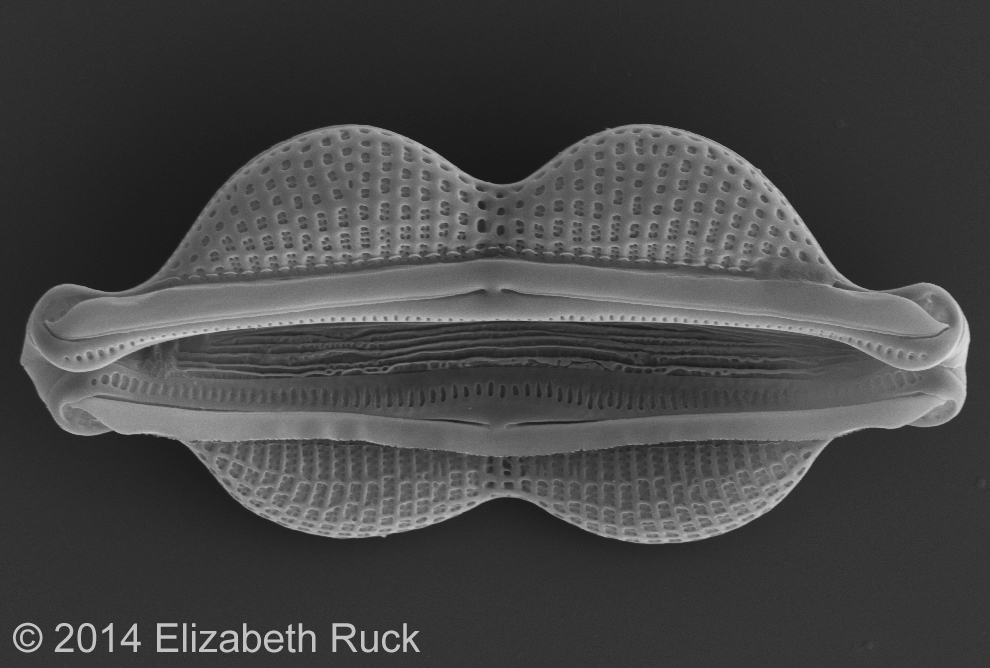University of Arkansas Biologist Featured in LiveScience
FAYETTEVILLE, Ark. — Diatoms are not only interesting because of their structure and diversity, but they are crucial to the Earth’s ecosystem.
That’s the message in a featured expert commentary written by the University of Arkansas’ Andrew J. Alverson in LiveScience, a popular online science news site. Alverson is an assistant professor of biological sciences in the J. William Fulbright College of Arts and Sciences.
Excerpts from his piece in LiveScience can also be found on the new Research Frontiers blog, which debuted recently with the launch of a new and more dynamic website for the university’s twice-a-year magazine that showcases U of A research.
Alverson studies the single-cell algae that are found in oceans, lakes and rivers; practically anywhere where there is sunlight and moisture.
“Diatoms are prolific photosynthesizers,” Alverson said. “They produce the oxygen for one of every five human breaths, so they’re extremely important in global cycling of carbon and oxygen.”
In the LiveScience commentary, Alverson calls the tiny creatures “the most important little organisms that most people have never heard of.”
“Diatoms are tiny — five to 10 of them could fit on the head of a pin — but these single-celled algae play an immense role in keeping the planet’s ecosystem working,” Alverson writes. “They’re important mediators of carbon and oxygen cycles, an integral component of marine food webs and the principal cyclers of silica, which constitutes about one-quarter of the Earth’s crust.”
Alverson recently received a grant from the National Science Foundation to reconstruct the origin and evolution of the genetic makeup of diatoms.
The NSF grant will fund collaboration between Alverson’s research laboratory and the lab led by Norman Wickett, assistant conservation scientist in genomics and bioinformatics at the Chicago Botanic Garden. The research will be showcased through an exhibit at the botanic garden that will highlight the numerous parallels between diatoms and flowering plants.
Contacts
Andrew J. Alverson, assistant professor
Biological sciences
479-575-7975,
aja@uark.edu
Chris Branam, research communications writer/editor
University Relations
479-575-4737,
cwbranam@uark.edu
Headlines
Affairs of the Heart
Find out how biomedical engineering professor Morten Jensen is developing innovative devices to produce better outcomes in cardiovascular medicine.
Students, Faculty and Alumni Kick Off Centennial Year of School of Law
Founded April 14, 1924, the School of Law faculty, students and alumni started the celebration of its centennial year with a Founders Day event and will continue with more commemorative events this coming fall.
Yearly Academic Award Winners, Ambassadors Recognized by Bumpers College
Schyler Angell, Lexi Dilbeck, Cason Frisby, Tanner Austin King, Anna Brooke Mathis, Carrie Ortel, Lucy Scholma, Kadence Trosper and student ambassadors were honored at the college's annual reception.
World Premiere of 'Cries from the Cotton Field' Slated for May 8
Cries from the Cotton Field chronicles the journey of 19th century Italian immigrants from northern Italy to the Arkansas Delta and ultimately to Tontitown. It will premier at 6 p.m. May 8 in Springdale Har-Ber High School.
Fay Jones School's Earth Day Event Spotlights Sustainable Materials and Projects
"One day doesn't seem like a lot, but one day can empower individuals and groups, energize them to work for change and innovate for transformative solutions," professor Jennifer Webb said of the students' design work.





